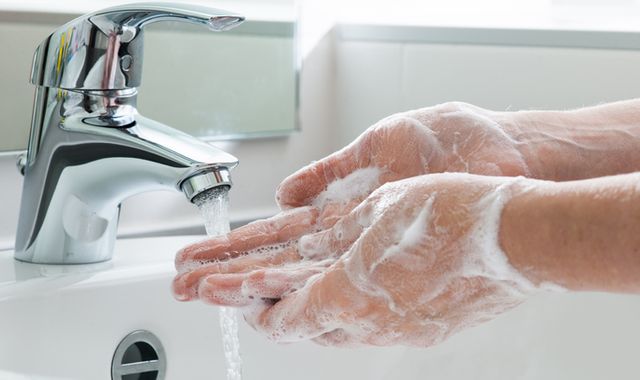Coronavirus: Why the pandemic has created a ‘vicious cycle’ for people with OCD
Written by News on 21/05/2020
Coronavirus has left people with obsessive compulsive disorder and health anxiety in a “vicious cycle”, experts have told Sky News.


Patients with both disorders constantly check their bodies for signs of illness and carry out washing or decontaminating rituals to help “reduce the threat” of them falling ill or something bad happening to them.
But the COVID-19 outbreak and recent easing of the UK’s lockdown restrictions has seen a surge in these obsessional “safety-seeking” behaviours, which feed the anxiety of OCD sufferers.
Professor Paul Salkovskis, director of psychological health at Oxford University, told Sky News: “If you wash your hands for 20 seconds after every time you go out, that’s fine.
“But if you’re washing your hands six or seven times after you touch the inside of your front door, that’s a problem.”
Professor Rona Ross-Morris, head of psychology at King’s College London, added that for most people, a certain level of anxiety about getting coronavirus will help them take practical steps to stop them catching it.
She said: “For people with health anxiety, safety-seeking behaviours cause a vicious cycle over time.
“So with COVID, washing your hands is a good thing, because it means you’re being vigilant.
“But if you’re health anxious, it might become a bad thing if you can’t control how often you’re doing it.”
Allanah, 22, was diagnosed with severe anxiety six years ago and also suffers from brittle asthma.
She is living with her partner and his parents in north Lincolnshire and says she is struggling after she was forced to go to A&E because of her breathing.
The university student said: “It was very scary going to hospital. I wore a mask but it’s not 100% protection. You think ‘what if the cleaners have missed something?’
“My partner and his mother are key workers, so they have to go out.
“When they come in they have to go straight in the shower, but I still think ‘what if they’ve touched something?’
“I have hand sanitiser near me at all times and there are wipes by the door.”
Health anxiety and OCD patients also use “avoidance behaviours” to try to reassure themselves.
Allanah said she has avoided going for walks because she is afraid of getting too close to someone and has quit her term-time bar job because she “doesn’t want to be in that environment” anymore.
Professor Ross-Morris said: “With the lockdown easing, people are going to be asked to go back to work or soon we might be told we can go to a friend’s house, this is going to be particularly anxiety-inducing for some people.
“But the more you avoid something, the more it gets worse. Avoiding them will not help you be safe.”
She also criticised the government’s “stay alert” message for making people with the two conditions “more anxious” after it was scrapped over claims it was too vague, with polls suggesting only a third of people understood what it meant.
But the new “keep our distance, wash our hands, think of others and play our part” slogan will still be a struggle because for patients “there are no 100% assurances you won’t get ill even outside the pandemic,” she said.
:: Listen to the Daily podcast on Apple Podcasts, Google Podcasts, Spotify, Spreaker
Professor Salkovskis added: “There’s no way of disconfirming COVID fears unless you go to a testing centre.”
OCD UK, Anxiety UK and Mind are all charities with services to help people struggling to cope.
The Oxford Health Specialist Psychological Interventions Centre has created a leaflet for managing OCD and coronavirus.
(c) Sky News 2020: Coronavirus: Why the pandemic has created a ‘vicious cycle’ for people with OCD







